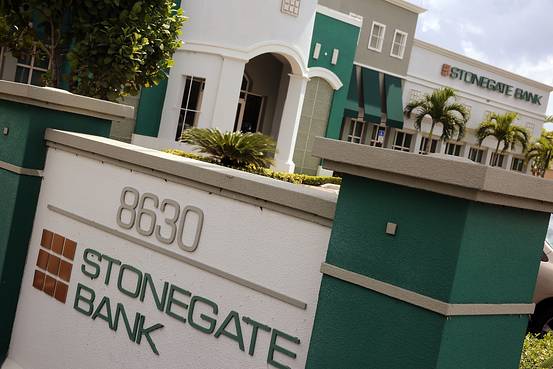
The bank that took a risk and helped clear the way to reopen Cuba
When Barack Obama and Raul Castro announced in December that their nations would restore relations after more than half a century, neither side guessed the biggest obstacle to reopening the Cuban embassy in Washington would be finding a bank willing to do business with Cuba.
Some issues remained as the latest round of talks between the U.S. and Cuba ended on Friday at the State Department. Among those differences are whether U.S. diplomats on the island will have the freedom to travel, meet with dissidents and conduct pro-democracy programs.
But the banking hurdle has been cleared, thanks to a March 12 meeting at Teddy & the Bully Bar, a downtown Washington restaurant aptly named for President Theodore Roosevelt, whose Rough Riders helped wrest Cuba from Spain’s control in 1898.
On that day, Dave Seleski, chief executive officer of Stonegate Bank in south Florida, got a call on his mobile phone from a client who was having lunch with a State Department official eager to talk with the banker immediately. Seleski had no idea that his community bank with 21 Florida branches and $2.26 billion in assets would make history, clearing the last administrative barrier preventing the two sides from reopening their embassies after 54 years.
“Our initial reaction was, why us?” Seleski, 50, said in an interview on Thursday. “Then: What’s the risk? We obviously went through all that.”
Political Backlash
After assessing the risks and finding everything to be legal, he and his bank’s board decided there was more to gain than lose and accepted Cuba as a client. While other south Florida banks may have worried about a political backlash from customers who object to restoring relations with the communist nation, Stonegate concluded it was on the right side of history.
Even after it was clear that the Obama administration would remove Cuba from its list ofstate sponsors of terrorism, State Department officials were struggling to find a bank willing to open an account for a future Cuban embassy. They tried large and small lenders, American and non-American institutions, searching for any bank that would enable Cuba’s diplomatic mission to pay its bills and process visas.
It was all legal, but for a variety of reasons — the hassle of complying with the Treasury and Commerce Departments and banking regulations and the fear of political controversy — no one was willing to take the chance.
Handling Exports
The solution was cooked up over steak salad, fried chicken and tomato soup. At the table were James Williams, president of Engage Cuba, a Washington-based group promoting closer economic and cultural ties with Cuba; Ariel Pereda, a Miami businessman who’s the exclusive distributor for a number of U.S. food brands sold in Cuba; and Mark Wells, the head of the State Department’s Cuba desk.
Wells told the others that talks were progressing, but they had been unable to help Cuba find a bank. Pereda, who has been a campaign fundraiser for Republicans as well as some Democrats and backs the Obama administration’s Cuba policy, pulled out his mobile phone and called Seleski.
Pereda knew Stonegate well because the bank has been handling his food export business with the island for five years. That also meant it was one bank already experienced in handling bank transactions with the Cuban government.
“This isn’t about being Castro’s banker,” said Pereda, 35, the son of Cuban immigrants who fled Fidel Castro’s regime. “This is about being Cuba’s banker. Cuba is 11 million human beings and their American relatives” who need travel visas and consular services that require a bank, he said.
Two months of phone calls and personal meetings between bank officials and Cuban diplomats followed. Stonegate did due diligence to ensure that an account would comply with all U.S. laws and banking regulations.
‘Good Thing’
“We felt ultimately normalizing economic relations with the Cuban people would be a good thing for both sides,” Seleski said. “Certainly American companies will benefit, and the Cuban people will benefit. There are going to be opportunities for everyone — Netflix, Caterpillar, General Motors, Ethan Allen and others have all expressed interest, and we feel across all industries there will be opportunities,”
Asked if Stonegate hoped to gain experience and be positioned to facilitate future U.S.-Cuba business dealings as trade regulations ease, Seleski answered, “That’s part of our logic. Stepping up to the plate and doing something first is always better than being last in line. We’re a bank; we’re no different from other companies.”
(From: Bloomberg)


